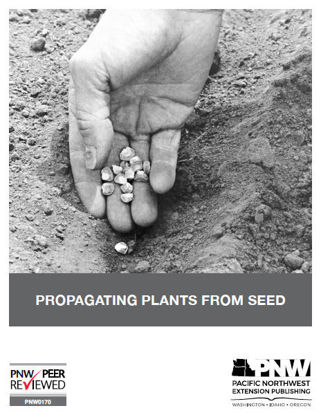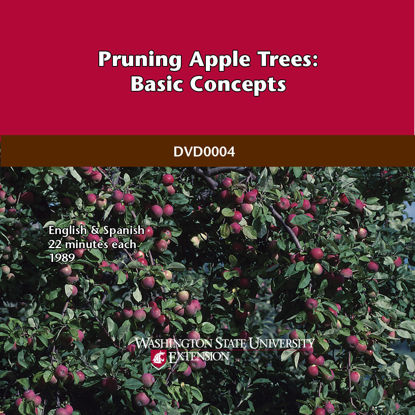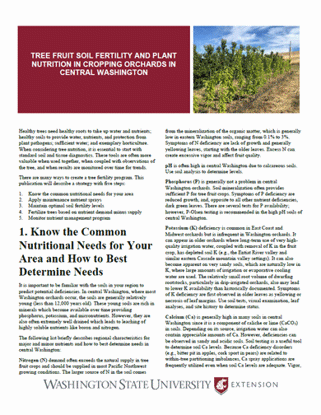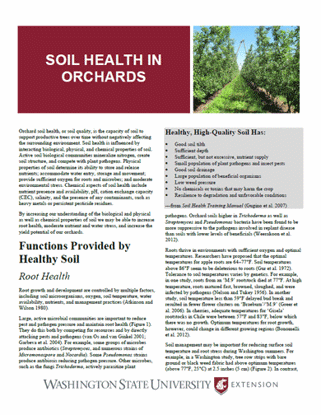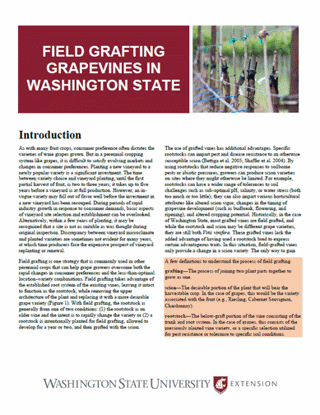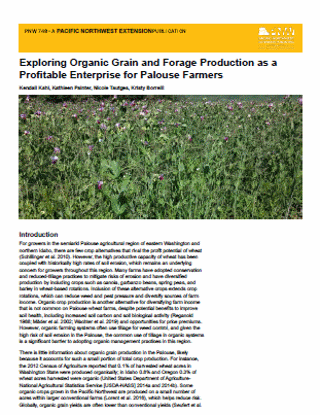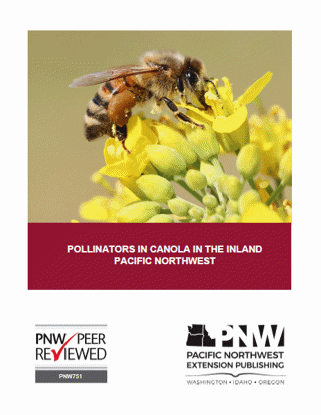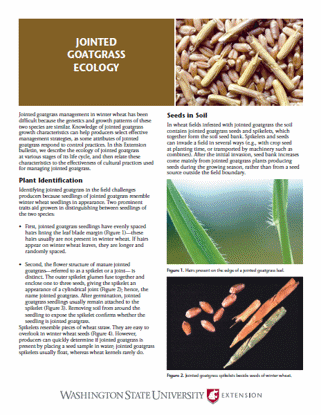You have no items in your shopping cart.
Plants
Plants
Yellow Toadflax and Dalmatian Toadflax
Yellow toadflax and Dalmatian toadflax are non-native plants that have become two of the most troublesome invasive weeds in North America.
$0.00
Propagating Plants from Seed
The enjoyment of growing plants can be enhanced by using successful methods. This booklet covers seed selection, starting plants indoors, planting seeds outdoors, and starting both herbaceous and woody plants.
$0.00
Tree Fruit Soil Fertility and Plant Nutrition in Cropping Orchards in Central Washington
A strategy with five steps: comprehensive information on soil and plant nutrition to increase production in cropping orchards.
$0.00
Soil Health in Orchards
Healthy, high-quality soil has the potential to increase the yield of your orchard: learn the nuts-and-bolts of great soil in this publication to get started.
$0.00
Field Grafting Grapevines in Washington State
Learn how to keep pace with market demands in your vineyard: field grafting overview, different types of grafts, step-by-step how-to’s, and more, covered here.
$0.00
Exploring Organic Grain and Forage Production as a Profitable Enterprise for Palouse Farmers
Demand for organic grain has outpaced actual US grain production in recent years. Yet little is known about organic grain production in the Palouse, likely because it comprises a small portion of total crop production. This study takes a closer look. It examines crop productivity under reduced-tillage conditions, provides estimates of field-scale costs, determines the benefits of crop rotation, and describes the principal factors that determine profitability within cropping systems. The verdict: organic grain and forage production can be a profitable niche enterprise within a traditional Palouse nonorganic wheat farm.
$0.00
Pollinators in Canola in the Inland Pacific Northwest
Canola grown in the Pacific Northwest is a great food source for bees: bees then pollinate the canola, increasing overall canola yields. Learn more here!
$0.00
Jointed Goatgrass Ecology
In this Extension bulletin, we describe the ecology of jointed goatgrass at various stages of its life cycle, and then relate these characteristics to the effectiveness of cultural practices used for managing jointed goatgrass.
$0.00


